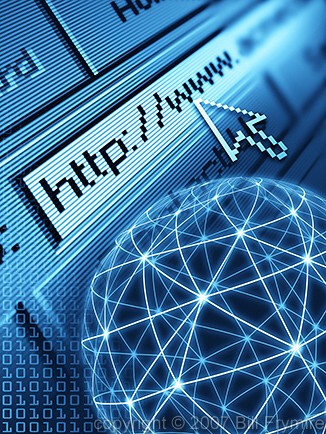 To paraphrase Sir Isaac Newton, ‘every little action has a reaction’.
To paraphrase Sir Isaac Newton, ‘every little action has a reaction’.
This applies to physics and to human life, especially the brain and the inner workings of thought. Little minute things can cause our brain to push our brain to function in a different way.
Recently, people have been more and more cautious about our mental fitness. Games like Brain Age, Suduko and others are being marketed with that in mind and seem to be quite successful at tapping that worry that somehow the conveniences of modern life are turning our brains into porridge. Even an article on the Economist.com, The Effects of the Internet, (sub. may be required) warns that the Internet is making our brains lazy.
President Obama made the same claim earlier this year.
As with any new technology affecting billions of people, the Internet is changing the way we think and learn on a large, global scale. It helps us communicate more easily, faster and in both simpler (IM) and more complex ways (video) while we can instantly access unprecedented scope of collective stored knowledge that we could never possibly never find in any one legacy knowledge store such as books or newspapers.
It has changed the way we approach problems. We now Google the issue and thousands of possible answers immediately pop up. Google gladly reminds us that these answers took only 0.235 seconds to discover your result. On another note, did it ever take more than 1 second to find something on Google?
Before the Internet we would have to visit libraries and look through books, journals or other references that we hoped would be sufficiently rich to the topic being researched. This required a lot of patience, time, energy and pre-knowledge of the subject matter. Some ideas might take years to actually appear in print in books in libraries that I might visit. The Internet greatly increased the scope of information available for searching and the convenience of searching. It has allowed the flow of information of unimaginable quantities to users across the globe or across the street, who instantly access it, or stumble upon it.
I believe that these effects are mainly good for the well-being of civilization and mankind. It makes us more efficient, more entertained, and more informed from the exposure to new information at our fingertips.
On the downside, it is also endangering some of our privacy. Whatever we post online is available for Google to suck up, attribute to us and share with people on the other side of the world, even if they were not the intended reader. People’s intimate details, whereabouts, and history can be found and potentially compounded to be used against them with more ease than ever before.
The Internet is an awesome always-on force in my house. I can’t remember the days before my family had Internet. I have used it throughout my career as a student. My family watches TV while sitting in the living room with our laptops on. We frequently search on the actors in the movie, learn about their other productions and read about the history of the production. It makes our entertainment more informed and it makes TV-viewing more interesting.
Like TV and radio before that, there will be those who claim the new _____ technology is corrupting youth and changing the world for the worse. Nonsense. For some folks 25 years ago, having calculators readily available in college or high school math exams was revolutionary and prevented students from having to learn their times tables thoroughly. The Internet makes life more interesting and makes me more aware of my surroundings. It’s like having an encyclopedia as my constant companion, except this one is 100,000 times thicker, a million times faster and richer than any single human production.
Does that make my mind a wasteland? Definitely not.

